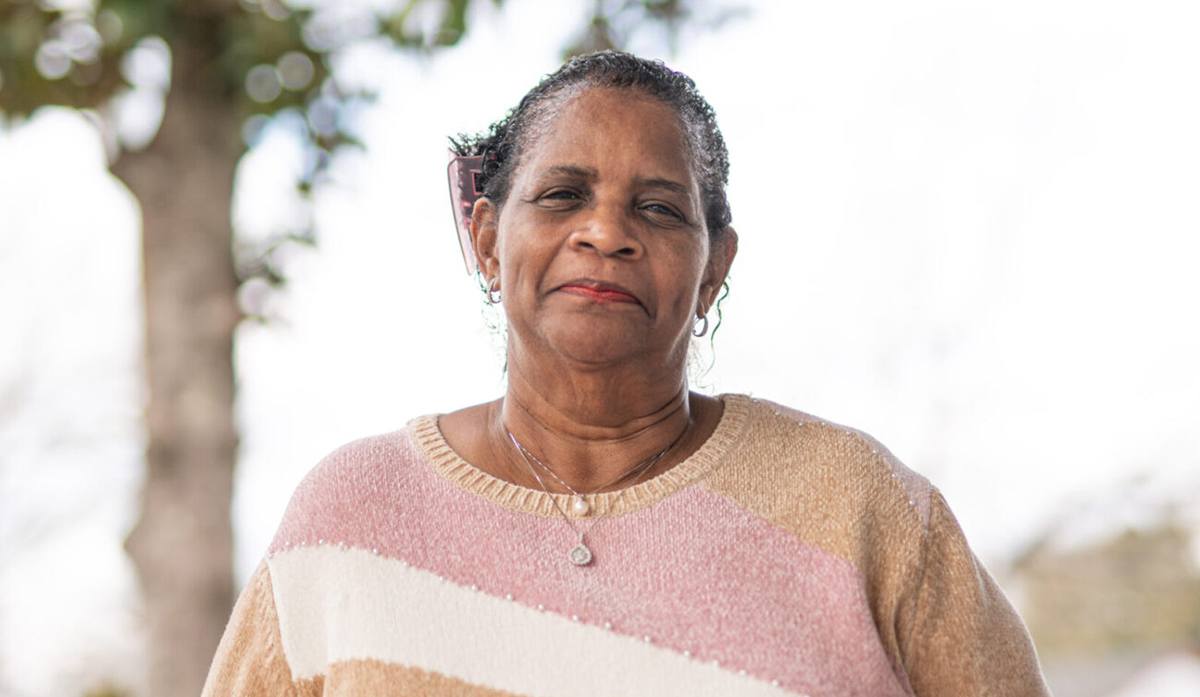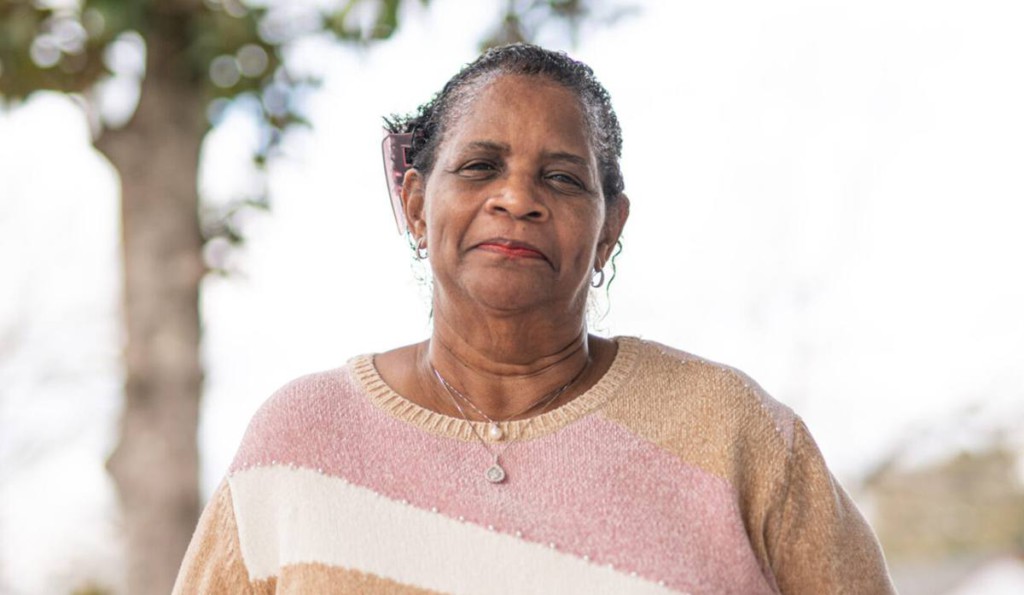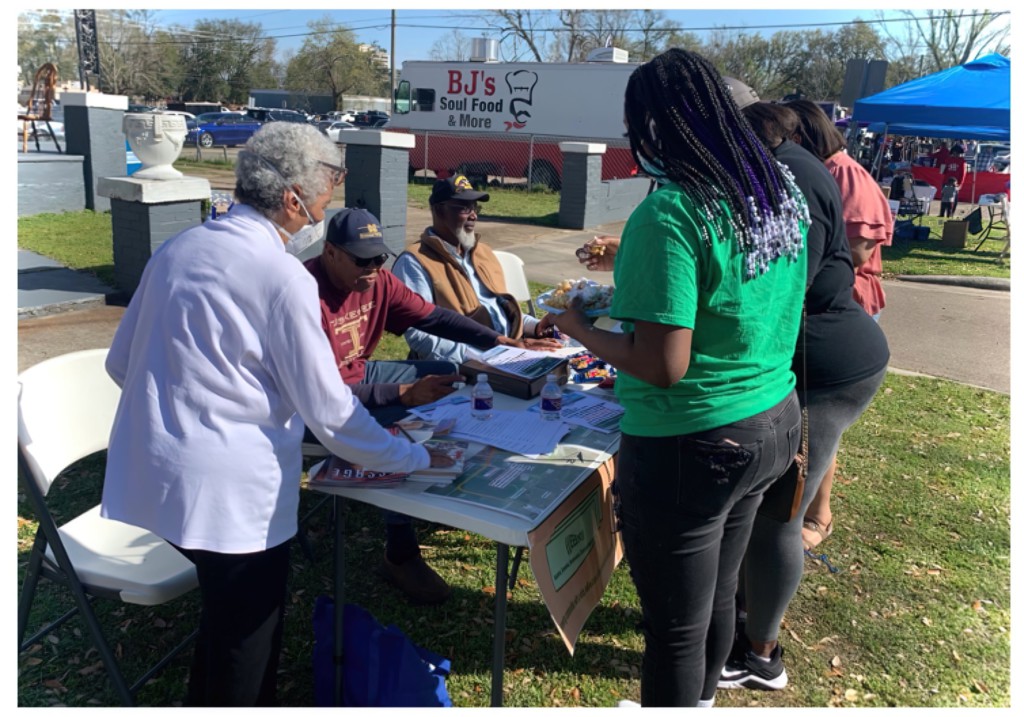
Our Community

Katherine Egland, co-founder of the Education, Economics, Environmental, Climate and Health Organization (EEECHO) based in Gulfport, Mississippi, has been an advocate on the frontline of change from a young age; as a high school student, she worked toward desegregating schools in Hattiesburg, Mississippi. But the impact of Hurricane Katrina on her new community in the Mississippi Gulf, followed by the BP oil spill five years later in the Gulf of Mexico, opened her eyes to the devastating effects of environmental racism.

Katherine Egland, program director and co-founder of EEECHO pictured in Gloster, Mississippi. (Photo from Andy Sarjahani)
“Five years after Katrina, I could walk out my front door and within eight to 10 minutes, I’m looking at sludge in the gulf from the BP oil spill,” she says. These two catastrophes spurred Egland to action. With a colleague at the Gulfport branch of the NAACP (for which Egland serves as chair of the National Board’s committee on environmental and climate justice), she started EEECHO to fight for health and environmental preservation in the Mississippi Gulf region.
Currently, EEECHO is involved in two crucial legal cases to protect sites of historical import for their significance in African American history. Turkey Creek and Forest Heights are both situated at key entry points to the Turkey Creek Watershed. The Turkey Creek Community Historic District was established in 1866, when a small group of free African Americans purchased the 320 acres that are the foundation of the neighborhood. Forest Heights was a groundbreaking mid-1960s integrated housing project for families, developed by the Department of Housing and Urban Development and the National Council of Negro Women with funding from the Ford Foundation to address the lack of electricity and running water for Black residents. These historical communities face a long history of environmental destruction and suffer from a lack of basic infrastructure, contaminated drinking water, and chronic flooding, a situation that was highlighted during Hurricane Katrina.
Represented by the Sierra Club and a local attorney, EEECHO is co-plaintiff in a lawsuit against the Department of Transportation challenging a proposed road that would run through these neighborhoods, which would disturb the wetlands but provide access for commercial development. And, in a separate case, on behalf of EEECHO, the Mississippi American Civil Liberties Union filed a third appeal against the Port of Gulfport’s proposed plan of a 24-hour military staging operation on the contaminated site of a former fertilizer plant near these two historic neighborhoods.
Locating the operation in that area is based on its heavy-industry zoning — the same zoning, Egland says, that has been in place since the early days of formal segregation. “There are three other places they could put it. Why would you want to put it in the heart of this African American residential neighborhood?”

Residents sign petition against a toxic, hazardous road project, complete medical cards and recieved masks, hand sanitizer, disinfectant, healthy foods and snacks. (Photo from EEECHO)
Egland’s environmental justice activism has taken her around the world where she forms international partnerships based on common interests. The United States Southeast is the largest source for wood pellets used in electric plants in the UK. With the NAACP and EEECHO, Egland has been fighting a biomass wood pellet facility the global company Enviva Pellets is proposing to build in Wiggins, Mississippi. These plants can release such pollutants as carbon monoxide, volatile organic compounds, nitrogen oxide, as well as fine and coarse particulate matter into the air and water. Egland has been invited by British activists to visit the UK to see the plants where the pellets are burned and help them in their efforts to stop the process on their end. As Egland says, environmental justice must be viewed as “a local to global issue.”
Environmental justice must be viewed as “a local to global issue.”
Egland is particularly incensed that EEECHO has had to fight against what she calls the “race and class baiting” practiced in Mississippi by these large industries. “They can go out and they can make false claims about economic prosperity, because it’s easy to talk about. People understand the need to put food on the table. They hired people to say, ‘we sure hope you’re not listening to that Sierra Club because they’re just a bunch of rich white people who don’t care anything about Black people in jobs. They just care about birds and trees.’” Egland says, “I told them that I knew what their president and CEO made, and I knew what the executive director of the Sierra Club made, and I would decide which one of those rich white men I wanted to listen to.”
It was so insulting, she says, because they were insinuating that she and the other members of the community did not have the intelligence to do their own research. But Egland was a few years into her retirement from a career as an educator when Hurricane Katrina hit, as such, she knows the importance of doing one’s homework. Her history in education influences her environmental activism; together with the North Gulfport community she collaborates with Thriving Earth Exchange, the National Oceanic and Atmospheric Administration, and Climate Central to develop curriculum and teach locals to use tools, such as the Surging Seas Risk Finder, an interactive tool that lets them map the vulnerability of our neighborhoods.
As Egland says about her community, “People are very very intelligent, but if they have not been exposed to information, then they are simply not going to know. Once they get an understanding, you really can’t stop them.”
Learn more about other courageous 2022 Frontline Justice Fund grantees like Egland, who are fighting for environmental and climate justice through legal and regulatory advocacy to protect their communities from harmful toxins.

Read the stories and hear the voices of social change leaders fighting for justice.